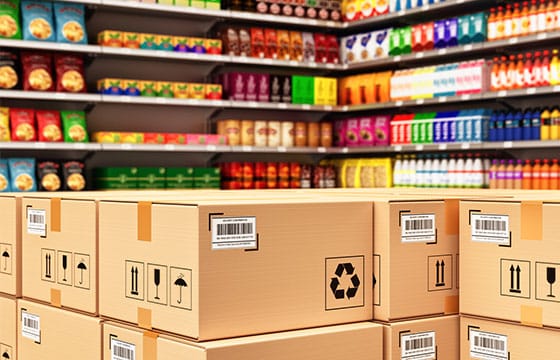 How to Minimize the Risk of Border Detention Shipping Consumer Packaged Goods
How to Minimize the Risk of Border Detention Shipping Consumer Packaged Goods
As an importer of consumer packaged goods, unanticipated delays at the border will cost time and money and can greatly impact your business. The Canadian Border Services Agency (CBSA) has the authority to detain consumer packaged goods at the border which prevents the entry of the shipment into Canada. These delays can cause unnecessary frustration, lead to a supply chain nightmare, and can impact operations significantly. However, detained shipments are avoidable.
The most common reason for shipment hold-ups at the border pertains to documentation. Completeness and accuracy of paperwork is crucial. More importantly, it is important to understand what information CBSA requires when completing the forms. Here are some things that are frequently overlooked or misunderstood and can possibly result to importing delays.
Missing Paper Work
Examples of situations that will result to importing delays at the border – The freight company only has a Bill of Lading and is not given any other documents such as a commercial invoice or Canada Customs invoice. The document is not the correct document to obtain a Customs clearance (i.e. purchase order or pick ticket).
There are four main documents needed for importing into Canada: (a) Canada Customs Invoice, or a Commercial Invoice; (b) Bill of Lading; (c) Manifest or Cargo Control Document; and, (d) Shipper’s Import/Export Declaration. Depending on the CPG to be imported, additional licenses or permits may be required.
Check for any special requirements or extra documentation that may need to be taken to properly clear the goods across the border prior to ordering or shipping. A licensed Customs Broker would be able to properly advise on what is needed in order for your shipment(s) have a seamless Customs clearance process.
Insufficient Information
Documents are improperly completed and do not have sufficient information to prepare the entry for presentation and clearance with the CBSA. Information that can cause hold ups include:
- business number
- goods description
- tariff classification
- commodity value
- country of manufacture or origin
- total number of pieces; and,
- weight.
Unclear Import of Record
Documents are hard to decipher who is the actual Importer of Record (IOR). The IOR can be the consignee or the receiver of the goods, the shipper, or an authorized third party. Importers and/or their authorized agents are responsible for the calculation and declaration of the value for duty of imported goods in accordance with the valuation provisions of the Customs Act.
Customs broker not identified
Engaging a customs broker is not mandatory but it is helpful when importing CPG. In the case that there is no customs broker, this should be clearly identified on the documents so that CBSA understands that you are preparing your own release and accounting documentation and transacting business directly with the CBSA.
The release of the shipment will require:
- Paying any duties that may apply;
- Obtaining, preparing and presenting or transmitting the necessary documents or data;
- Maintaining records; and
- Responding to any CBSA concerns after payment.
The benefit of having a customs breaker is that they will do all activities to obtain the release of the imported goods. The CBSA has a list of licensed customs broker within Canada which identifies locations each broker is licensed.
The Commodity Itself
A delayed shipment can also be due to the actual commodity being shipped. Before proceeding with importing, ensure the goods to be imported are permitted into Canada or whether the goods are subject to any permits, restrictions or regulation. For more information on prohibited products, Memoranda Series D9 provides more information on prohibited importations.
Some goods have Participating Government Agencies (PGA) involved in approving the goods for Customs clearance, such as items that are under control of Canadian Food Inspections Agency (CFIA). They require CFIA approval and some commodities are under quota and require an Import Permit. Certain goods are subject special import measures while some are covered by specific domestic controls.
Understanding the CPG being imported and the required paperwork are two main things that can reduce the risk of your shipment delays at the border.


